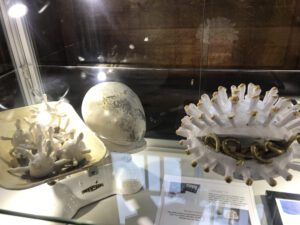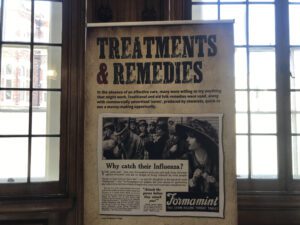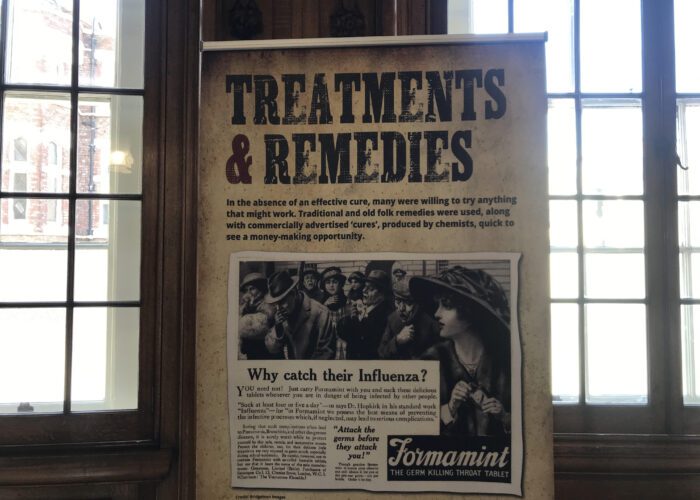
A new exhibition which highlights one of the deadliest epidemics of the 20th Century has come to the city.
Spanish Influenza took hold of the UK in 1918 and killed around 50 million people worldwide, and the people of Liverpool, men, women and children, contributed to this number.
To understand this hellish ordeal, the Liverpool Medical Institute has created an exhibition, and held an event to educate the visitors on the disease.
A visual representation of what the disease looks like, featuring H1N1 enzyme, was created by LJMU MA student and artist, Helen Birnbaum. Her detailed work brings the microbes from under the microscope to a larger than life scale.
Helen told JMU Journalism: “I have been attracted, if that’s the right word, to the strange beauty of these forms, which is completely at odds with the devastation they can wreak.
YouTube: Dan Jones
“I hand-build my work in stoneware ceramic clay using moulds made from spherical form, bowls and packaging anything I come across that I can use to make interesting forms.”
The Spanish Flu was said to have killed more people in a year than the Black Death in the 14th Century.
To help further people’s knowledge of the disease, the Florence Nightingale Museum at St Thomas Hospital in London has loaned the Medical Institute a selection of posters. The posters show symptoms of the Spanish Flu, how to stay healthy and remedies to prevent the flu.

Adrienne Mayers, a librarian at the institute, was part of the team which brought the exhibition together.
She was excited to show off the collection and allow a younger audience to come into the Medical Institute and enjoy different activities, such as the contamination control demonstration.
She said: “We want to educate people. Most people don’t know but the Spanish Flu killed more than World War One, as the disease attacked younger, healthier people. We hope it also highlights the importance of flu jabs today.”
The exhibition can be accessed throughout October, Monday to Wednesdays, at the Liverpool Medical Institute, from10am-4pm.

